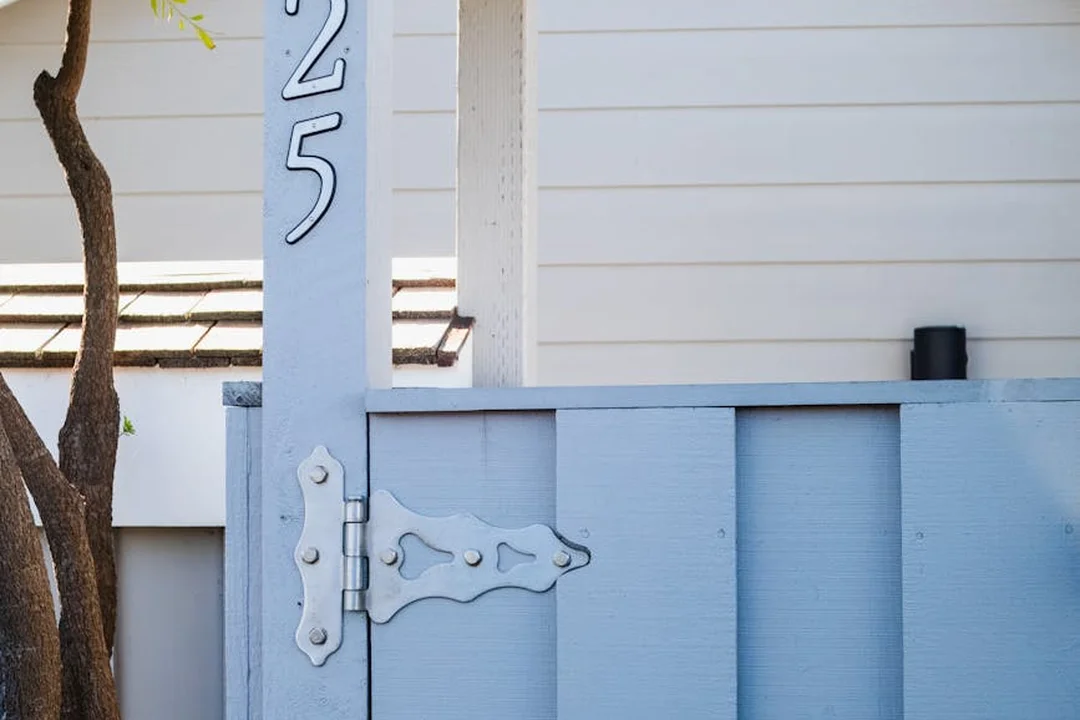What Are HOA Rules and Regulations?
Published on: November 26, 2025 | Last Updated: November 26, 2025
Written By: Brandon Chatham
HOA rules and regulations are the official guidelines that govern a community, covering everything from property maintenance and architectural changes to noise levels and pet policies. Think of them as the community’s playbook, designed to maintain order, protect property values, and ensure a pleasant living environment for all residents.
You might wonder why such detailed rules are even necessary. These guidelines exist to create a consistent and predictable standard of living that benefits everyone. Without them, one neighbor’s bright pink house or late-night loud parties could negatively impact your property’s worth and your daily peace. The primary goal is to balance individual freedom with the collective good of the neighborhood.
This article will guide you through the specifics of these rules, helping you understand your rights and responsibilities. We will cover:
- How HOA rules are created and legally enforced.
- Common rule categories you’re likely to encounter.
- Practical steps for handling rule disputes or violations.
- The direct connection between these regulations and your home’s financial value.
Knowing the rules is your first step toward a harmonious and stress-free community living experience.
Understanding HOA Rules and Regulations
Think of your HOA’s governing documents as the community’s official playbook. These documents, which include the Covenants, Conditions, and Restrictions (CC&Rs), the Bylaws, and individual Rules and Regulations, create a legally binding framework for your neighborhood. The CC&Rs are the heavyweight, outlining your fundamental obligations and the association’s authority over the properties.
The Bylaws focus on the HOA’s internal operations, detailing how the board is elected and how meetings are run. Rules and Regulations are the more specific, day-to-day guidelines that the board can often update to address new issues as they arise. You agreed to abide by these terms when you purchased your home, making them a critical part of your property ownership.
Why HOA Rules Matter for Your Community and Property
HOA rules exist for more than just maintaining a certain look. These standards directly protect your financial investment by preserving and often enhancing property values across the entire community. A neighborhood with consistent upkeep and a harmonious appearance is simply more attractive to future buyers.
Beyond your wallet, the rules foster a predictable and pleasant living environment for everyone. They establish a baseline for neighborly conduct, which helps to minimize conflicts and maintain a sense of order and safety. The rules also ensure that shared amenities and common areas are maintained properly for all residents to enjoy.
Consistent enforcement creates a level playing field. No single homeowner can make alterations or engage in behaviors that negatively impact the collective well-being and aesthetic of the community. This shared commitment is what transforms a group of houses into a cohesive, functional neighborhood.
Common Types of HOA Rules That Impact Residents

Architectural and Aesthetic Standards
These rules govern the external appearance of your property to maintain a uniform and appealing streetscape. Architectural guidelines ensure that any changes to your home’s exterior are reviewed for quality and consistency with the community’s character. You will typically need to submit a request and get approval before starting most projects.
Common architectural controls include:
- Paint colors: Approved color palettes for your home’s exterior.
- Landscaping: Requirements for lawn maintenance, tree types, and garden beds.
- Fences and sheds: Regulations on materials, height, and placement.
- Roofing materials: Specifications to ensure durability and a consistent look.
- Decorative items: Limits on flags, holiday decorations, and yard art.
Behavioral and Usage Rules
These rules focus on how residents and their guests use their properties and common areas. Behavioral guidelines are designed to promote peace, quiet, and safety, preventing one person’s actions from disrupting the entire community. They cover a wide range of everyday activities to ensure everyone can enjoy their home.
You will frequently encounter rules about:
- Noise levels: Quiet hours, often in the evenings and early mornings.
- Parking: Restrictions on street parking, commercial vehicles, and boat or RV storage.
- Pet policies: Limits on the number, size, or breed of pets, plus leash and waste cleanup rules.
- Rental restrictions: Guidelines on whether you can rent out your home and for what duration.
- Trash management: Rules for when to put bins out and where to store them.
Enforcement of HOA Rules and Compliance Tips
Wondering what happens if a rule gets broken? HOAs have a structured enforcement process designed to be fair and ensure community standards are upheld for everyone’s benefit. This process typically starts with a friendly reminder before escalating to more formal actions.
The Typical HOA Enforcement Process
Most associations follow a similar, step-by-step path. This isn’t about being punitive; it’s about resolving issues.
- Written Notice: You will receive a formal letter or email detailing the violation. This notice gives you a specific timeframe to correct the issue.
- Opportunity for a Hearing: If you disagree with the violation, you can usually request a hearing with the HOA board to present your side of the story.
- Imposition of Fines: If the issue isn’t resolved, the HOA may levy fines. These often accumulate daily or weekly until compliance is met.
- Suspension of Privileges: In some cases, your access to community amenities like the pool or clubhouse might be temporarily suspended.
- Placing a Lien: For unpaid fines, the HOA can place a lien on your property. This is a legal claim that must be settled before you can sell your home.
Common Consequences for Non-Compliance
The specific penalties depend on your community’s governing documents and the severity of the violation.
- Monetary fines for things like unauthorized exterior changes or parking in fire lanes.
- Late fees and interest charges on any unpaid dues or existing fines.
- Suspension of your right to vote in association meetings or use common areas.
- In extreme, prolonged cases, the HOA may pursue legal action or even foreclosure for unpaid debts.
Practical Tips for Staying in Compliance
Avoiding headaches is simpler than you might think. Proactive communication with your HOA board or property manager is your most powerful tool for avoiding violations. A quick conversation can often clear up confusion before it becomes a problem.
Know Your Governing Documents
This is the single most important step. Keep a digital copy of your Covenants, Conditions, and Restrictions (CC&Rs), bylaws, and rules on your phone or computer for easy reference. Don’t assume you remember every detail, especially before starting a new project.
Seek Approval First
When in doubt, always ask. Submit an Architectural Review Form for any planned exterior changes, even minor ones like painting your front door or installing a new mailbox. Getting pre-approval prevents costly corrections later and shows you’re a conscientious neighbor.
Respond Promptly to Notices
If you receive a violation letter, don’t ignore it. Open communication with the board after a violation notice can often lead to a reasonable resolution or an extended deadline. Ignoring the problem will only make it worse and more expensive.
Get Involved and Stay Informed
Attend board meetings or read the minutes. Attending just one HOA meeting a year can provide invaluable insight into upcoming rule changes, community projects, and your neighbors’ concerns. You’ll be better prepared and more connected to your community’s pulse.
Homeowners’ Rights and Dispute Resolution

Your home is your castle, and that doesn’t change just because you live in a community with an HOA. You possess specific rights as a homeowner that protect you from arbitrary or unfair actions by the association. Knowing these rights is your first line of defense and the foundation for any challenge.
How to Challenge HOA Rules
Disagreeing with an HOA rule doesn’t mean you’re destined for a bitter fight. A structured, respectful approach often leads to the best outcome.
Phase One: Preparation and Knowledge
Before you say a word to the board, your homework begins. Rushing in without preparation rarely works.
- Thoroughly review your CC&Rs, bylaws, and the specific rule you are challenging.
- Check your state’s laws governing HOAs for any relevant homeowner protections.
- Document everything related to the issue, including dates, communications, and photos.
- Build a case based on facts, not just emotions, explaining how the rule is unreasonable or improperly applied.
Arming yourself with the governing documents turns a subjective complaint into an objective, winnable argument.
Phase Two: Direct Engagement and Dialogue
Start with a conversation, not a confrontation. Most boards are composed of your neighbors who want a harmonious community.
- Submit a formal, written request to the board for a rule change or variance.
- Attend an open board meeting and request time on the agenda to speak.
- Present your case calmly and clearly, referencing the documents you’ve studied.
- Propose a reasonable alternative or compromise that addresses the rule’s original intent.
Demonstrating a willingness to collaborate shows the board you are a reasonable partner, not just an adversary.
Phase Three: Escalation and Formal Action
If direct dialogue fails, you have other avenues to pursue. These steps require more effort but protect your interests.
- Petition for a Special Meeting to let the broader membership vote on the rule.
- Run for a seat on the board yourself to influence change from within.
- Seek mediation, where a neutral third party helps you and the board negotiate a solution.
- Consider arbitration for a binding decision without a full-scale lawsuit.
Formal dispute resolution methods are often faster and less expensive than litigation while still providing a fair hearing.
When Legal Action Becomes Necessary
Filing a lawsuit is a last resort, but sometimes it is the only option left.
- The rule violates state or federal law, such as fair housing statutes.
- The board failed to follow its own procedures in enforcing the rule.
- The rule is applied selectively or discriminatorily.
- The rule constitutes a “taking” of your property without compensation.
Consulting with an attorney who specializes in HOA law is critical before initiating any legal action to understand your specific chances of success.
Changes to HOA Rules and Their Effects
Your community’s governing documents are not set in stone. HOAs can and do amend their rules to adapt to new challenges and community needs. This process, however, is strictly governed by the association’s bylaws and state law.
How Rules Are Typically Amended
Changing a rule isn’t a simple decision made by the board on a whim. The amendment process usually requires a formal vote from the community membership. Here is the common procedure many associations follow.
- The board of directors identifies a need for a new rule or a change to an existing one.
- Homeowners are given formal notice of the proposed amendment, often included with a meeting agenda.
- A vote is held during a scheduled meeting of the membership.
- A majority or supermajority vote (as defined in your bylaws) is required for the change to pass.
- Once passed, the new rule is formally recorded with the county and distributed to all homeowners.
Your Rights When Rules Change
As a homeowner, you have specific rights when facing a new or modified rule. You are entitled to clear communication and a fair opportunity to voice your opinion. Understanding these rights protects you from arbitrary governance.
- Right to Notice: You must receive proper notification of the proposed change and the upcoming vote.
- Right to Be Heard: You have the right to attend the meeting and speak for or against the amendment.
- Right to Vote: Your vote counts toward the final tally, provided you are in good standing.
- Right to Grandfathering: In some cases, existing situations may be “grandfathered” in, meaning the new rule does not apply retroactively.
Navigating the Impact of New Rules
A new rule can directly affect your property use and finances. Proactive communication with the board is your most effective tool for navigating these changes. If a new rule seems unreasonable, you have several paths forward.
- Review the official amendment documentation to understand the exact language and intent.
- Attend a board meeting to ask respectful questions about the rule’s purpose and enforcement.
- Discuss the change with your neighbors to gauge community sentiment and potentially gather support for a reconsideration.
- If you believe the rule violates your governing documents or state law, consult with an attorney who specializes in HOA law.
Evaluating HOA Rules Before Buying a Home

Before you commit to a home, you must treat the HOA’s governing documents with the same seriousness as a home inspection. Failing to review these rules can lead to unexpected costs and restrictions that impact your daily life and financial future. This due diligence is your primary defense against buying into a community that doesn’t align with your lifestyle.
Key Documents You Must Review
Request and carefully read these three essential documents from the seller or HOA management. Do not proceed without them.
- CC&Rs (Covenants, Conditions, and Restrictions): This is the master rulebook for the community, outlining everything from architectural standards to resident conduct.
- Bylaws: These define the operational structure of the HOA itself, including board elections, meeting procedures, and officer duties.
- Rules and Regulations: These are the more specific, day-to-day guidelines that expand upon the CC&Rs, covering topics like parking and pool use.
Critical Rules to Scrutinize
Some rules have a more significant impact on your ownership experience than others. Pay close attention to these common areas of restriction.
- Rental Restrictions: Many HOAs limit or prohibit renting out your unit, which can affect your investment strategy.
- Pet Policies: Look for bans on specific breeds, weight limits, or limits on the number of pets you can own.
- Architectural Controls: Rules often govern exterior paint colors, fencing, landscaping, and even the type of window treatments you can install.
- Vehicle and Parking Rules: Some associations prohibit parking RVs, boats, or commercial trucks on the property, even in your own driveway.
Assessing the Financial Health and Fees
The monthly HOA fee is just the beginning of the financial picture. You need to dig deeper to understand the full cost.
- Analyze the HOA’s Reserve Study: A healthy reserve fund means the HOA is prepared for major repairs without hitting you with a massive special assessment.
- Understand What the Fees Cover: Fees typically pay for common area maintenance, amenities, and insurance, but the specifics vary widely.
- Ask About Recent Special Assessments: Frequent special assessments can be a red flag for poor financial planning or deferred maintenance.
Practical Steps for Your Evaluation
Take an active role in this investigation. A passive approach can lead to costly regrets down the road.
- Formally request all governing documents and the most recent financial statements.
- Read every page, highlighting any rule you find confusing or concerning.
- Talk to current residents about their experience with the HOA board and rule enforcement.
- Drive through the community at different times to observe the general upkeep and whether rules appear to be consistently enforced.
- Consider consulting a real estate attorney familiar with HOA law if you have significant concerns.
Your future happiness in your new home depends on this careful review, making it one of the most critical steps in the entire home-buying process. Never assume all communities operate the same way or that rules will be loosely enforced.
Common Questions
How do HOA rules impact property values?
HOA rules protect your financial investment by ensuring consistent property upkeep and a harmonious community appearance. This collective standard makes the neighborhood more attractive to potential buyers, which directly supports and can enhance property values. It’s important to understand the HOA’s covenants, conditions, and restrictions (CC&Rs), as they dictate these standards.
How are HOA rules enforced and does that matter?
Rules are typically enforced through a process that begins with a written notice and can escalate to fines or other penalties. Consistent and fair enforcement is critical because it ensures a level playing field and maintains the community standards that benefit everyone.
Can HOA rules change, and how does that matter to residents?
Yes, rules can be amended through a formal process that often involves a vote by the community membership. This matters because changes can directly impact your property use, so staying informed and participating in the process is essential to protect your interests.
How do HOA rule changes impact rental properties?
Rule changes can introduce new restrictions, such as limiting the number of rentals or requiring minimum lease terms. This can significantly affect your ability to rent out your property and your investment strategy, making it crucial to review new amendments carefully.
Your Path Forward with HOA Rules
Familiarizing yourself with your specific HOA’s governing documents is the first step to living peacefully within your community. Proactive communication and a clear understanding of your responsibilities will help you avoid common pitfalls and contribute positively to your neighborhood.
Further Reading & Sources
- 16 HOA Rules and Regulations You Need to Know + Real Examples – WildApricot
- What Are HOA Rules and Regulations? | Associa
- Understanding Homeowners Associations (HOAs): Rules, Fees, and Benefits
- HOA Bylaws and Regulations: You Need to Know | TownSq
Brandon has been on both ends of HOA, as part of it, he has helped build his community in Oregon, while also helping other homeowners deal with typical and atypical issues one might face. He has 8+ years of experience dealing with HOAs himself and on behalf of his friends and family, and he brings his extensive expertise and knowledge to make your HOA interaction seamless and smooth.
Uncategorized
